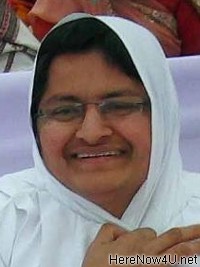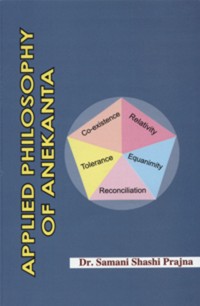The present trend of increasing number of nuclear families has been considered as main cause of stress among the teen agers. The entire responsibility of the family is laid on the shoulder of husband and wife in a nuclear family. When we ponder the business organizations the rat race for acquiring more and more money by hook or crook, has led to the deterioration of the graph of morality.
In present scenario, comfort oriented outlook, absence of commitment towards one’s duty, lack of mutual help, lack of compassion, lack of universal brotherhood, lack of open-mindedness, lack of proper management in all the fields has led to total disaster. Due to terrorists attacks, serial bomb blasts incidents of rape, kidnapping, hijacking etc., a kind of the feeling of insecurity is increasing in the minds of all. Everyone feels that they are unsafe. In the business market also sudden changes, ups and downs in the values of shares, economic recessions, etc. are really the situations when many businessmen undergo depression due to sudden loss. So in this age of materialistic culture, over-consumerism, fast communication technology, exploitation of renewable and non-renewable resources due to uncontrolled ambitions and desires, competition between the nations to produce more and more nuclear weapons, use and throw culture etc., leading towards depletion of ozone layer, climate change, global warming at the global level. Along with this Dink culture (Double income and no kids) and the culture of homosexuality has led the entire human race at stake. In addition to this, political instability is really attacking on the very social structure and organization. The only solution for all these problems lies in the anekantic life style, if one deeply reflects upon it.[1]
The charter of United Nations, an extension of the anekāntik principles, has prevented outbreak of major world wars for five decades, despite two super powers at loggerheads, the cold war did not ablaze. But this was a partial success. If allowed to function fully, UNO can solve several international problems amicably. Mere observance of a year as one of tolerance or non-violence will not suffice. What is needed is mutual trust and respect, sincere concern for the fellow nations. Let it be clarified that anekānta is not for one world government. People of every country could enjoy national sovereignty, culture and pride, but should not consider themselves supreme with power to enslave others. There is nothing wrong with privatization or nationalization, capitalism or communism, globalization or swadesi movement, provided, we understand that these are not absolute systems, and each has some merit. The latest example of anekāntik application is the recent decision of the Union Government to link major rivers of the country to prevent famine in some parts and floods in other parts of the country at the same time.The broad lesson is that we should reflect on every problem with the wisdom that there is some sense in every view point, even though at any given time and space, a particular view may offer the best choice. If so, any problem, whether practical or spiritual, social or political, economic or legal, whether pertaining to a family or a nation or a community of nations, can be resolved peacefully.
Thus anekānta or syādvād tries to make the man conscious of his limitation by pointing out his narrow vision and limited knowledge of the manifold aspects of things, and helps him not to be hasty in forming absolute judgements before examining various other aspects, both positive and negative. Obviously, much of the bloodshed, and much of tribulation of mankind would have been saved if man had shown the wisdom of understanding the contrary viewpoints. Mahāvīra carried this concept of non-violence from the domain of practical behaviour to the domain of intellectual and philosophical discussion. Thus the Jain principle of 'respect for the life of others' gave rise to the principle of ‘respect for the views of others’. In fact, the essence of the anekānta doctrine is embodied in this principle of respect for the views of others. Thus Kapadia has noted: this doctrine of anekāntavāda helps us in cultivating a tolerant attitude towards the views of our adversaries. It does not stop there, but takes us a step forward by making us investigate as to how and why they hold different views and how the seeming contradictions can be reconciled to evolve harmony. It is thus an attempt towards synchronization.
 Dr. Samani Shashi Pragya
Dr. Samani Shashi Pragya

